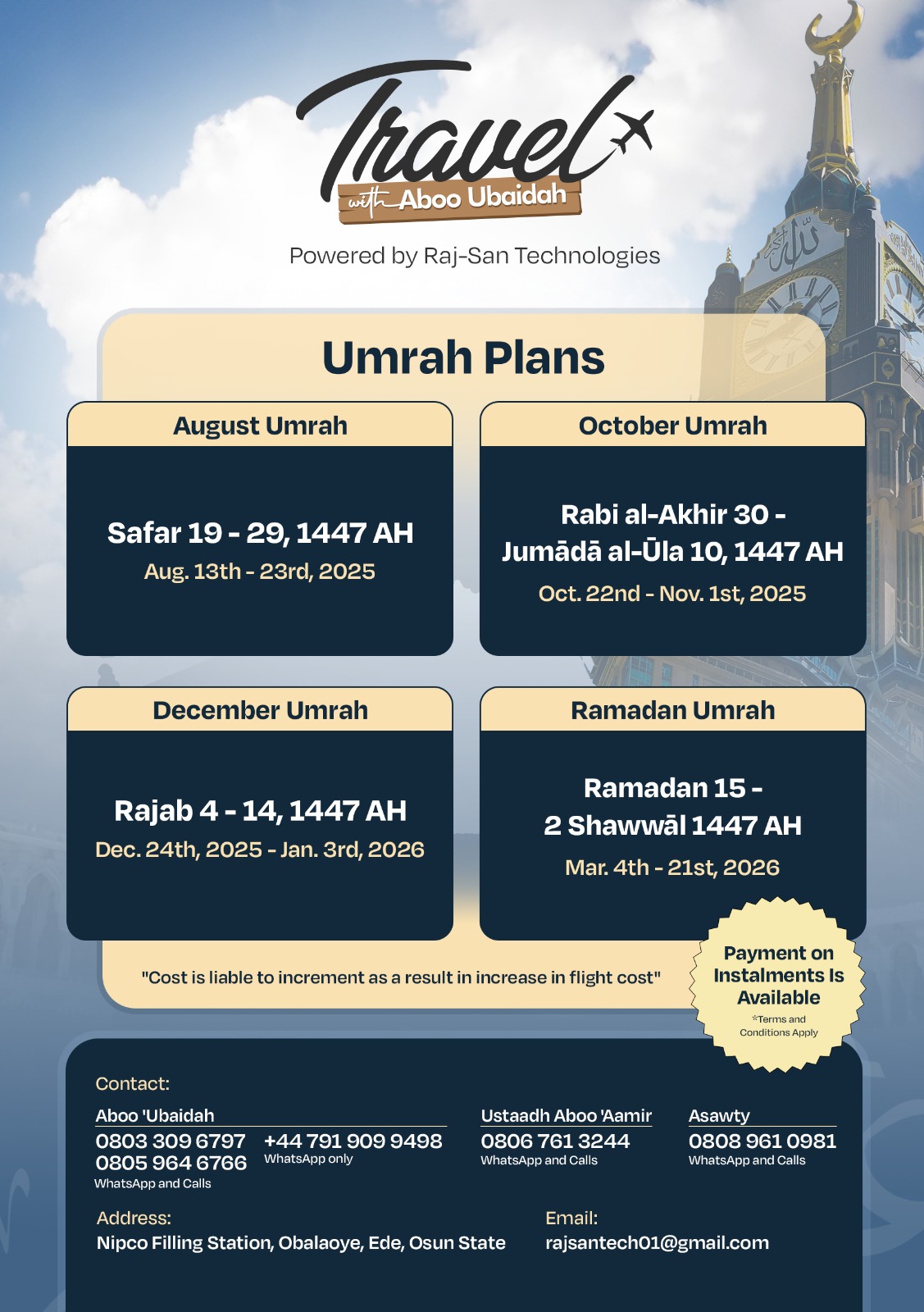From the book: Protests According to the Qur’an, the Sunnah & the Explanation of our Pious Predecessors
BY Aboo Naasir - Hafidhahu-Llaah
Sa'eed bin Monsur reported that Hushaym narrated to them that Mujalid reported from Ash-Sha'bee who said, 'Umar – may Allah be pleased with him – admonished the people (on the pulpit). He thanked Allah and praised Him and said, 'Do not make the women's Mahr high. If it reaches me that anyone placed something higher than what Allah's Messenger (peace and blessings be upon him) placed or collected, I will take the excess for the Bayt al-Mal.' Then he descended. Thereupon, a woman from the Quraysh approached him and said, 'O leader of the believers, is it the Book of Allah the Mighty and Sublime that is more deserving to be followed or your statement?' Umar answered, 'Of course, the Book of Allah. What's the matter?' She said, 'You have prohibited the people a while ago from asking for high Mahr for women but Allah – the Mighty and Sublime – said in His Book, '…and you had given one of them a great amount of gold…'[101 An-Nisaa: 20].'
Thereupon, Umar said, 'Everyone gives more understanding than Umar.' twice or thrice. He returned to the pulpit and addressed the people (saying), 'I had forbidden you from asking for high Mahr for women. Listen, every man should do what he considers appropriate with his wealth (on this issue).'
Those who allow protests claim that the narration is evidence that one may protest against constituted authority because the woman according to it, corrected Umar – may Allah be pleased with him.
Clarification: This hadeeth is very weak, irregular and does not evince protests and demonstrations. As for the weakness in its chain, it is from two angles:
a. It has a broken chain between Ash-Sha‟bee, 'Amr bin Sharaaheel, who cited the story, and Umar – may Allah be pleased with him – about whom the story was. So Imam ad-Daaruqutnee said, 'He did not meet Umar.'
[See: Sunan Ad-Daaruqtnee (3/309) cited in Tahdheeb al-Kamaal (14/30). The earliest date of birth mentioned of Ash-Sha'bee was in the sixth year of the caliphate of 'Umar (may Allah be pleased with him) which would imply that he was only about 3 years old when the caliph died. If this were correct – and it is not correct -, Ash-Sah'bee could not have witnessed such a discussion at the time.
Moreover, Ash-Sha'bee even only saw Alee (may Allah be pleased with him) at a very young age and could barely remember the only hadeeth he reported directly from him – based on the correct opinion on the issue – which he would even report through an intermediary from Alee. Thus, he most likely met only the later years of Alee. So, how could he have witnessed an argument between 'Umar and the Quraysh woman about 20 years earlier? See Bahjat al-Muntafi' (pg. 459-461).]
Therefore, Imam al-Bayhaqee mentioned the report in his Sunan al-Kubraa and then said, “This (report) is broken (in its chain).”
[See: Irwaa al-Galeel fee Takhreej Ahaadeeth Manaar is-Sabeel (6/348).]
b. The second defect in its chain is the weakness of the reporter, Mujaalid bin Sa'eed al-Koofee. Imam ad-Daaruqutnee said, “He is not a trustworthy reporter.”
Imam Ahmad graded him weak, and also said, “he has many shady reports.” Imam Ibn 'Adiyy said, “His reports are generally not sound.” Ibn Hibban said, “He mixes up chains of report and connects (reports with) broken chains. It is not permissible to depend on him.”
One of those who reported from Mujaalid, Yahya bin Sa'eed al-Qattaan describing how unreliable Mujaalid is in his reports said, “If I want him to make it all from Ash-Sha'bee from Masrooq from Abdullah from (so-and-so), he would do it!”
[See: Sharh 'Ilal at-Tirmidhee (pg. 117) with the Checking and editing of Iyyad bin Abdul-Lateef al-Qaysee. This is evidence that the chain that occurs in Tafseer Ibn Katheer (1/686) for this story collected by Abu Ya'ala which ends with Mujaalid from Sha‟bee from Masrooq and said to be Jayyid (good) is in fact from the mistakes of Mujaalid bin Sa'eed! As such, Shaykh Abu 'Ubaydah Hani al-Haaj included it as from the slips in Tafseer Ibn Katheer in his book, At-Tahbeer li al-Awhaam wat-Tanbeehaat al-Waaridat fee Tafseer Ibn Katheer pg. 20-21.]
Imam Al-Bayhaqee said, “He is not dependable.”
[See: Mu'jam Jarh wat-Ta'deel lir-Rijaal as-Sunan al-Kubraa (pg. 140). See also Mu'jam Asaamee ar-Ruwaat Al-Ladheena Tarjama lahum Imam Al-Albaanee Jarhan wa Ta'deelan (3/520-523).]
As regards its Nakaarah, the irregularity, it comes from two angles:
a. The narration contradicts what is authentically reported of Umar about high Mahr. It showed that Umar discouraged asking for high Mahr by way of Prohibition [1], threatening to retrieve whatever was higher than the Mahr given by the Prophet (peace and blessings be upon him) thereby contradicting the texts that allow the one who can give high Mahr to do so. However, what is reported by reliable narrators with linked chain from Umar showed that he only disliked high Mahr by way of encouraging [2] the people to follow the Prophet (peace and blessings be upon him) in his giving moderate Mahr to his wives and asking the same for his daughters. Umar stressed that high Mahr does not actually show the status of a woman in this world or hereafter. He did not contradict the texts that allow high Mahr for the one who can afford it.
[Sidenotes:]
[1] [Imam Ibn Katheer, depending on this report expressly stated that “Umar – may Allah be pleased with him – forbade high Mahr.” Tafseer Ibn Katheer (1/686)].
[2] [Imam Al-Baghawee depended on this authentic report to say that it is encouraged to make the Mahr moderate. Tafseer al-Baghawee (1/328)].
The report reads, 'Umar addressed us, saying, 'Do not make the women's Mahr high. If doing so shows nobility in this world or piety in the sight of Allah, the Prophet (peace and blessings be upon him) would have preceded you in that. Allah's Messenger (peace and blessings be upon him) did not give Mahr to any of his wives neither was any of his daughters given more than twelve Awqiyas.
[Collected by Aboo Daawood (2106), At-Tirmidhee (1114) and others. Graded Saheeh (authentic) by Imam Al-Albaanee in Irwaa ul-Galeel (6/347). Imam At-Tirmidhee, Ibn Hibban, Hakim and many others have previously graded it authentic. One Awqiya equals 40 Dirhams. Awn al-Ma‟bood (6/99)]
All these form evidence that the report of Umar and the woman is from the many shady, mixed-up reports of Mujaalid bin Sa'eed, and from the types of Munkar hadeeth is when a weak, unreliable reporter contradicts trustworthy, reliable reporter(s) in his report. [See An-Nukkat 'alaa Nuzhat in-Nazar (pg. 91).]
b. The irregularity in the story of the Quraysh woman contradicting „Umar is further demonstrated by the fact that, while the verse talks about the Mahr itself and the quantity that may be given by a man, 'Umar's statement is directed to the collectors, encouraging them to be moderate. So it does not contradict the “statutory” allowance for high Mahr. [See Tuhfat al-Ahwadhee (3/666).]
Therefore, the story of the woman's contradicting Umar is Munkar, strange, irregular, [Imam Muhammad Naasiruddeen al-Albaanee (may Allah shower blessings on him) pointed to this Nakaarah, strangeness in his checking and grading of this report. He even said he had written an article on the issue published in the Tamaddun magazine some years ago. See Irwaa ul-Galeel (6/348).], with conflicting parts, and contrary to what is authentically reported from 'Umar on the issue.
This is perhaps the reason why many of the scholars who reported 'Umar's discouragement of high Mahr abandoned the story! Hafidh Ibn Hajar al-Asqalaanee said, “The basic statement of 'Umar, 'Do not make the women's Mahr high' is reported by collectors of the Sunan and it was graded authentic by Ibn Hibban and al-Hakim but without the story of the woman.”
[See: Fath al-Baaree (9/256).]
Imam Shams al-Haqq al-'Azeem al-Aabaadee gave similar explanation in his commentary on the hadeeth.113
[See: Awn al-Ma'bood (6/99). This Nakaarah, irregularity, exposes the baselessness in the attempt of the author of Jami' Ahkam an-Nisaa (3/300-301) to prove the narration Hasan (good) along with the story of the Quraysh woman by strengthening it with other weak chains]
As for the story not being suitable as evidence for protests – even if it were authentic –, this is for the fact that the woman approached 'Umar privately after his sermon and presented the matter to him. She did not do that publicly in the mosque neither did she spread what she conceived to be an error amongst the people to mobilize a march against 'Umar. In fact the report showed that the manner to correct specific mistakes of leaders – as explained earlier - is by meeting them privately and talking to them in a nice manner with good evidence.
See: 'Protests According to the Qur’an, the Sunnah & the Explanation of our Pious Predecessors' pp. 39-44.

